Related Research Articles

The 1970 United Kingdom general election was held on Thursday 18 June 1970. It resulted in a surprise victory for the Conservative Party under leader Edward Heath, which defeated the governing Labour Party under Prime Minister Harold Wilson. The Liberal Party, under its new leader Jeremy Thorpe, lost half its seats. The Conservatives, including the Ulster Unionist Party (UUP), secured a majority of 30 seats. This general election was the first in which people could vote from the age of 18, after passage of the Representation of the People Act the previous year, and the first UK election where party, and not just candidate names were allowed to be put on the ballots.
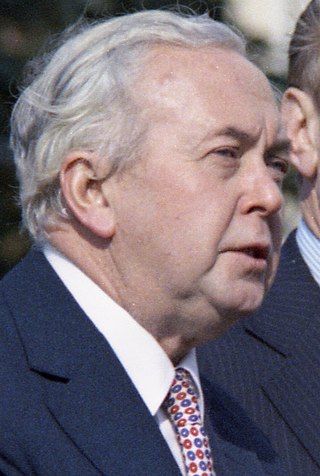
The February 1974 United Kingdom general election was held on Thursday 28 February 1974. The Labour Party, led by Leader of the Opposition and former Prime Minister Harold Wilson, gained 14 seats but was seventeen short of an overall majority. The Conservative Party, led by incumbent Prime Minister Edward Heath, lost 28 seats. That resulted in a hung parliament, the first since 1929. Heath sought a coalition with the Liberals, but the two parties failed to come to an agreement and so Wilson became Prime Minister for a second time, his first with a minority government. Wilson called another early election in September, which was held in October and resulted in a Labour majority. The February election was also the first general election to be held with the United Kingdom as a member state of the European Communities (EC), which was widely known as the "Common Market".

The 1950 United Kingdom general election was the first ever to be held after a full term of Labour government. The election was held on Thursday 23 February 1950, and was the first held following the abolition of plural voting and university constituencies. The government's 1945 lead over the Conservative Party shrank dramatically, and Labour was returned to power but with an overall majority reduced from 146 to just 5. There was a 2.8% national swing towards the Conservatives, who gained 90 seats. Labour called another general election in 1951, which the Conservative Party won.
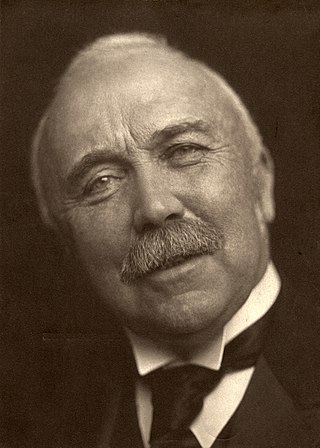
The 1906 United Kingdom general election was held from 12 January to 8 February 1906.
Janet Ray Michie, Baroness Michie of Gallanach was a Scottish speech therapist and Liberal Democrat politician. She served as the Member of Parliament for Argyll and Bute for fourteen years, from 1987-2001, and then became a life peer in the House of Lords. She was the first peer to pledge the oath of allegiance in the House of Lords in Gaelic.
Ross and Cromarty was a county constituency of the House of Commons of the UK Parliament from 1832 to 1983. It elected one Member of Parliament (MP) using the first-past-the-post voting system.
Lieutenant-Colonel Neil Loudon Desmond McLean, DSO**, known as Billy McLean, was a Scottish politician and intelligence officer in the British Army. During World War II, he worked for the Special Operations Executive and was involved in clandestine missions in Ethiopia, China, and particularly Albania. In 1954 he served as a Unionist Member of Parliament for Inverness.

The 2011 Scottish Parliament election was held on Thursday, 5 May 2011 to elect 129 members to the Scottish Parliament.

A Glasgow Hillhead by-election was held on 25 March 1982. The by-election was caused by the death of the Conservative Party Member of Parliament for Glasgow Hillhead Tam Galbraith on 2 January 1982.

John MacDonald Bannerman, Baron Bannerman of Kildonan OBE was a Scottish farmer, rugby union internationalist and Liberal politician.
The 1978 Berwick and East Lothian by-election was a by-election held for the House of Commons constituency of Berwick and East Lothian in Scotland on 26 October 1978. It was one of two UK parliamentary by-elections held on that day, and was won by the Labour Party candidate John Home Robertson.
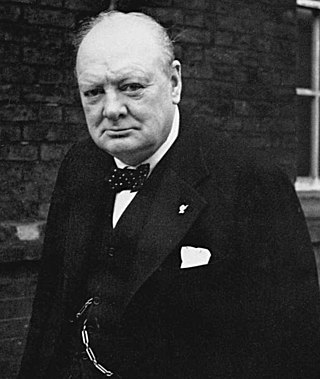
Elections in England and Wales, 1949 held during the week of 4–9 April for County Council positions, resulted in sweeping Conservative gains and correspondingly heavy Labour losses. A remarkable feature of the elections was the "dead heat" in the London County Council between Labour and the Conservatives, who each won 64 seats, with the Liberals retaining one seat, that of Sir Percy Harris in Bethnal Green. Outside London, Labour lost its former control of Middlesex, Essex, Northumberland, and the West Riding of Yorkshire; retained control of Derbyshire, Durham, Glamorgan, Monmouthshire, and Nottinghamshire, but won Carmarthenshire, the only county gained by Labour.

Henry Vivian Phillipps was a British teacher, lawyer and Liberal politician.
The Coalition Coupon was a letter sent to parliamentary candidates at the 1918 United Kingdom general election, endorsing them as official representatives of the Coalition Government. The 1918 election took place in the heady atmosphere of victory in the First World War and the desire for revenge against Germany and its allies. Receiving the coupon was interpreted by the electorate as a sign of patriotism that helped candidates gain election, while those who did not receive it had a more difficult time as they were sometimes seen as anti-war or pacifist. The letters were all dated 20 November 1918 and were signed by Prime Minister David Lloyd George for the Coalition Liberals and Bonar Law, the leader of the Conservative Party. As a result, the 1918 general election has become known as "the coupon election".

Charles Philip Fothergill was an English woollen manufacturer and Liberal Party politician.
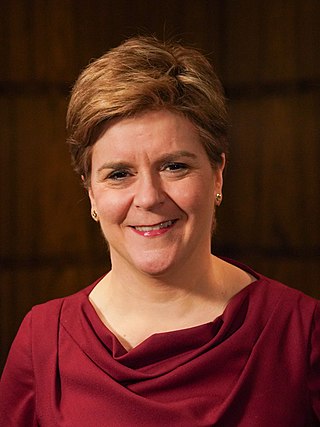
The 2021 Scottish Parliament election took place on 6 May 2021, under the provisions of the Scotland Act 1998. All 129 Members of the Scottish Parliament were elected in the sixth election since the parliament was re-established in 1999. The election was held alongside the Senedd election, English local elections, London Assembly and mayoral election and the Hartlepool by-election.
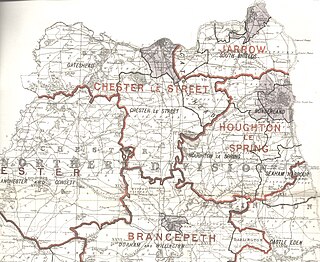
The North West Durham by-election was a Parliamentary by-election held on 30 January 1914. It returned one Member of Parliament (MP) to the House of Commons of the United Kingdom, elected by the first past the post voting system.

The Linlithgowshire by-election was a Parliamentary by-election held on 7 November 1913. The constituency returned one Member of Parliament (MP) to the House of Commons of the United Kingdom, elected by the first past the post voting system.
The 1917 Inverness-shire by-election was a parliamentary by-election held for the House of Commons constituency of Inverness-shire in the Scottish Highlands on 2 January 1917.
The 1940 Argyllshire by-election was a parliamentary by-election for the British House of Commons constituency of Argyllshire, on 10 April 1940.
References
- ↑ The Times, 4 December 1954, p. 6
- ↑ Alun Wyburn Powell, The Inverness turning point; in Journal of Liberal History, Issue 53 Winter 2006-07 pp. 18–25
- ↑ The Times, 11 December 1954 p. 3
- ↑ The Times, 13 December 1954 p. 4
- ↑ The Times, 4 December 1954 p. 6
- ↑ The Times, 11 December 1954 p. 3
- ↑ The Times, 15 December 1954 p5 & 18 December 1954 p. 3
- ↑ Wyburn Powell, op cit
- ↑ The Times, 17 December 1954 p. 4
- ↑ "1954 By Election Results". Archived from the original on 4 February 2012. Retrieved 14 August 2015.
- ↑ Wyburn Powell, op cit
- ↑ The Times, 24 December 1954
- Inverness by-election result
- Bannerman: The Memoirs of Lord Bannerman of Kildonan, edited by John Fowler; (Impulse Books, Aberdeen, 1972)
- Chris Cook & John Ramsden, By-elections in British Politics; UCL Press, 1997 p. 286